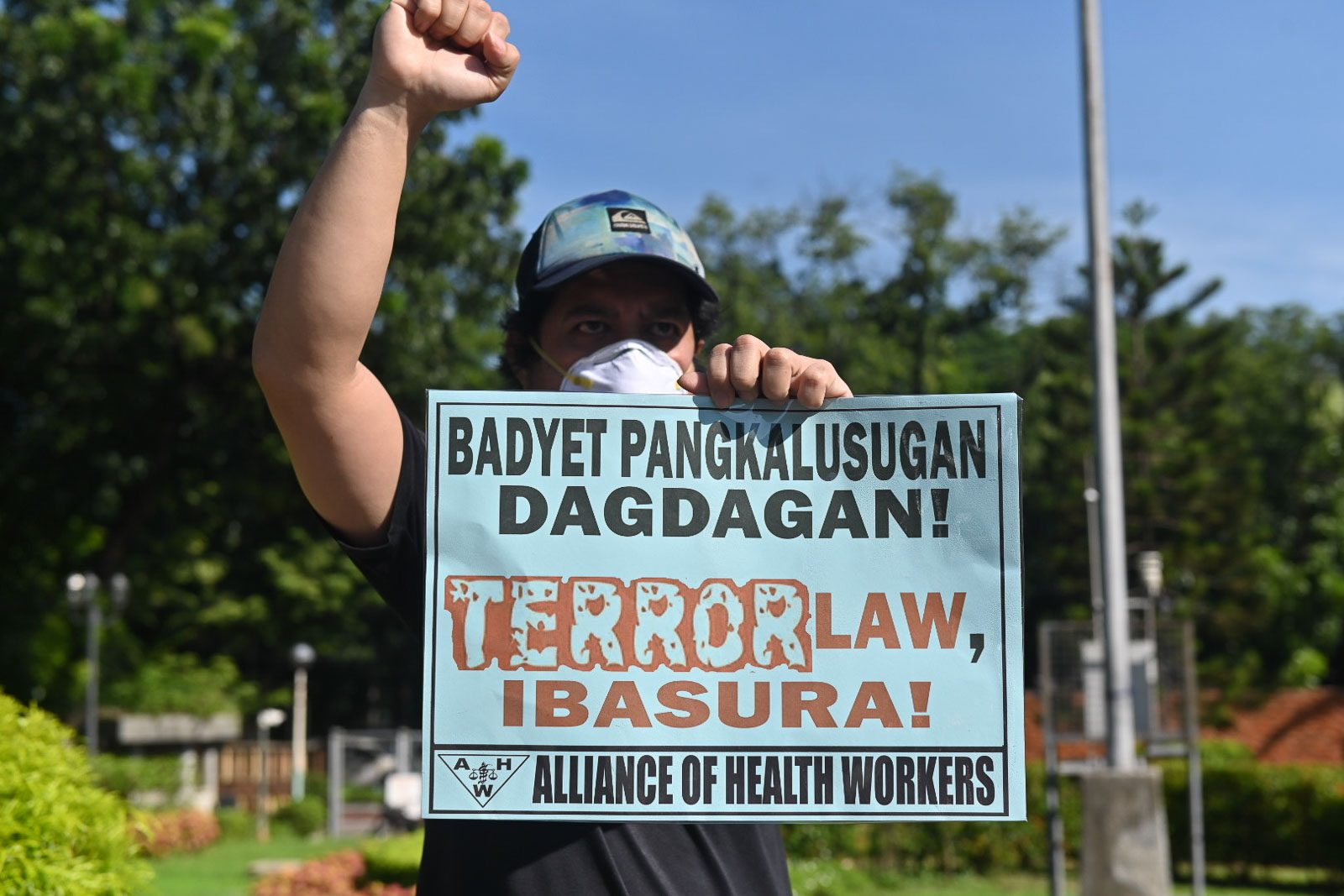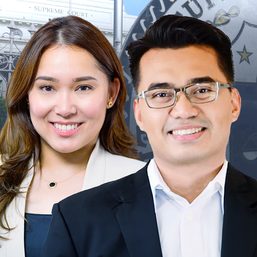SUMMARY
This is AI generated summarization, which may have errors. For context, always refer to the full article.

The Supreme Court will finally hold a preliminary conference with lawyers of the 37 petitions against the anti-terror law on November 26 – 4 months after the enactment of the law – but the mode of the pre-hearing is still being questioned as of Tuesday, November 17.
The Supreme Court required the lawyers of the petitioners as well as the Office of the Solicitor General (OSG) to be personally present in the Court headquarters in Padre Faura, Manila, and present a negative coronavirus test. The Supreme Court said only one lawyer per petition may join, and only 3 from the OSG including Solicitor General Jose Calida.
In an urgent motion filed Monday, November 16, the Free Legal Assistance Group (FLAG) requested that the pre-hearing be held virtually instead, saying that some of the lawyers are based outside Manila, even as far as Mindanao.
“Travel to Manila appears to be impracticable and may pose a serious health risk to counsel and all attendees of the preliminary conference,” said FLAG, which represents journalists, constitutional framers, and opposition lawmakers.
FLAG noted that the Supreme Court already has a Microsoft Teams platform for lower court virtual hearings, and proposed that it be the same platform used for the preliminary conference.
As of posting, there is still no update from the Supreme Court if the justices settled this during their en banc session on Tuesday, November 17.
The anti-terror law is feared to deal a blow to legitimate dissent, stretching the period of warrantless detention to as long as 24 days, and allowing the executive anti-terror council to post on the internet people it will unilaterally declare as terrorists without the benefit of a trial.
Oral arguments
Chief Justice Diosdado Peralta earlier said that for the oral arguments to be orderly, the member-in-charge will identify the common issues in the petitions. Similar petitions will be grouped, and petitioners will choose one representative to the oral arguments.
FLAG proposed another way: Drop the procedural issues from the oral arguments and have lawyers thresh these out in written memoranda to the Court.
FLAG said the oral arguments can just revolve around 3 topics:
- Overbreadth of the anti-terror law
- Void for vagueness of the anti-terror law
- Necessity of a status quo ante order or similar preliminary injunction
It is also still unclear at this point how the Supreme Court plans to hold the oral arguments, whether it’s in person or virtually. There is also no final schedule yet.
‘Move in the premises’
The Supreme Court required the petitioners and the OSG to “move in the premises” in light of the issuance of the Implementing Rules and Regulations (IRR) on October 17.
To move in the premises means for parties to agree on how to treat the IRR because the petitions were filed before the IRR was issued, and therefore specifically addressed only the provisions of the law and not the IRR.
The IRR added new features, prompting some petitioners to file reiterative motions to specifically challenge provisions of the IRR.
FLAG reiterated their position that the IRR is more reason for the Supreme Court to issue a temporary restraining order (TRO) to stop the implementation of the law.
The Department of Justice (DOJ) said the law has not been applied to anyone as of yet.
Motions submitted to the Court to remind them that there is enough legal basis to issue a TRO, since a TRO does not affect the main outcome of the case.
“As this Court has repeatedly held, a law that restricts speech on the basis of content is, in fact, presumed to be unconstitutional, and such presumption warrants the Supreme Court’s immediate issuance of a TRO to preserve sacrosanct constitutional rights,” said FLAG in its compliance with manifestation also filed Monday.
The Supreme Court issued a TRO against the Cybercrime Law in October 2012, only a month after the law’s enactment. It held oral arguments only in January 2013. – Rappler.com
Add a comment
How does this make you feel?





There are no comments yet. Add your comment to start the conversation.